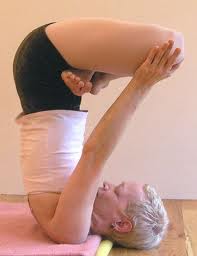Fending Off State Agencies Requires More than Slow Breathing for Yoga Studios

Yoga studios around New York were able to prevent a proposed government regulation from coming into effect three years ago which would have required them to obtain licenses. The studios objected to the license requirement do to the costly nature of the process, which could have led to the end of many of the studios which operate on a shoestring budget.
One Down Three to Go
That was three years ago. Today no less than three different state agencies are making demands on the yoga studios which they say would drive them out of business or make their studios less inviting to their patrons.
• The New York State Department of Taxation wants to force yoga studios to pay a 4.5 percent sales tax on the classes they offer.
• The New York City Department of Buildings wants to require yoga studios to have a particular permit allowing them to operate legally.
• The New York State Department of Labor is insisting that their instructors be treated like employees and not independent contractors, which is how the majority of yoga instructors are employed.
Several of the yoga studio operators say that these agencies are having financial troubles and believe that coming after the yoga industry, estimated to be earning about $6 billion per year in the United States, is a good place to find some extra money.
“Agencies are suffering,’’ said J. Brown, owner of Abhyasa Yoga in Brooklyn. “They think they can reinterpret statutes and apply them to yoga.’’
Department of Taxation Says No New Tax
The tax department has already been neutered by the efforts of the yoga studio operators through their state-wide lobbying group Yoga for New York. In April of 2011 the department circulated a bulletin which listed yoga in the same category as Turkish baths and weight-loss centers as far as their requirement to pay the 4.5 percent sales tax was concerned.
Finally after months of discussions and negotiations the tax department relented and allowed the yoga studios to operate free of the sales tax.
“We took into account that yoga is historically practiced for its spiritual and meditative benefits,”
said Geoff Gloak, a spokesman for the tax department. Mr. Gloak explained that there can be fine line between businesses requiring payment of a sales tax and those that don’t.
Physical Culture Building Permit Required: Not!
As yoga has grown as an industry, it becomes more difficult to see yoga as different than other “personal health” related industries where a sales tax is required.
Two yoga studio owners say they have been fined for not being in possession of a “physical culture establishment” permit. Businesses such as health clubs which have pools, gyms and showers fall into this category. In one case a building inspector arrived at Nikki Vilella’s Brooklyn yoga studio and asked to see her permit. Since she did not have one she ended up paying an $800 fine.
A spokesman for the agency Tony Scalfani says that “yoga studios are not required to have’’ this permit, and he could not explain why Vilella needed to pay the fine.
Employee-Employer Relationship Examined
Three yoga studios have been audited by the Labor Department for hiring independent contractors rather than full-time employees.
However a spokesman for the agency, Leo Rosales says that each studio is examined separately, and each case is decided independently. “There are no statutory guidelines specific to yoga studios,’’ said Rosales.
Alison West, the executive director of the lobbying group Yoga for New York says that yoga is not just another kind of physical fitness activity which can be lumped together with simple exercising, weight-training or Pilates. Yoga has a strong component which focuses on chanting, meditation and breathing.
“Equating yoga centers with gyms or weight loss salons is a little like equating a painting by Rothko with a billboard sign,’’ said West.
She also explained that the yoga studios struggle to make their classes affordable and available to everyone, often operation close to the edge of profitability.
“What people do not often understand is the degree to which so many yoga students have so little money,’’ Ms. West said. “Studios are constantly doing outreach — offering specials, by donation classes, teaching in prisons and public schools — so that those with less money can do practices which are deeply de-stressing.’’
